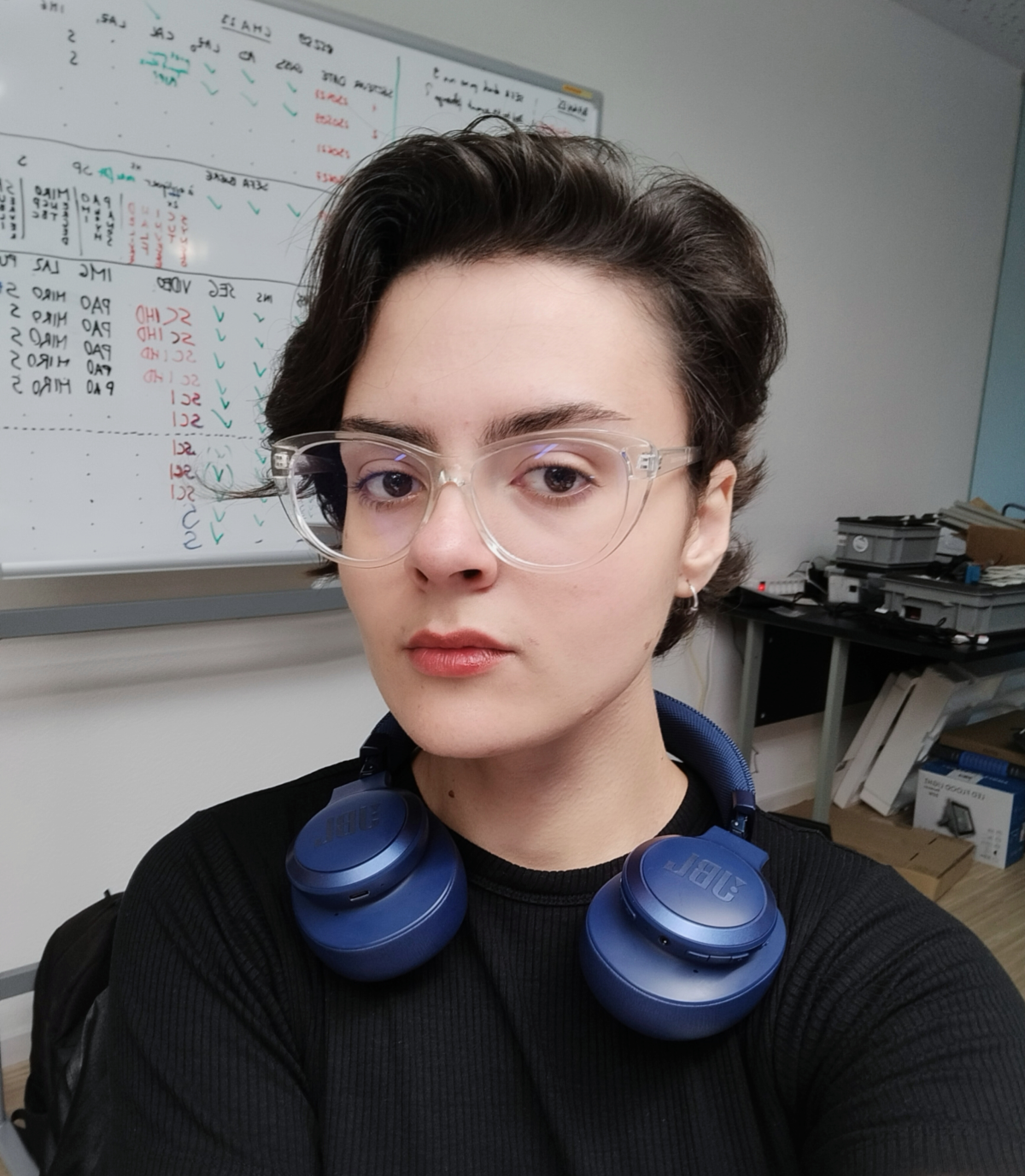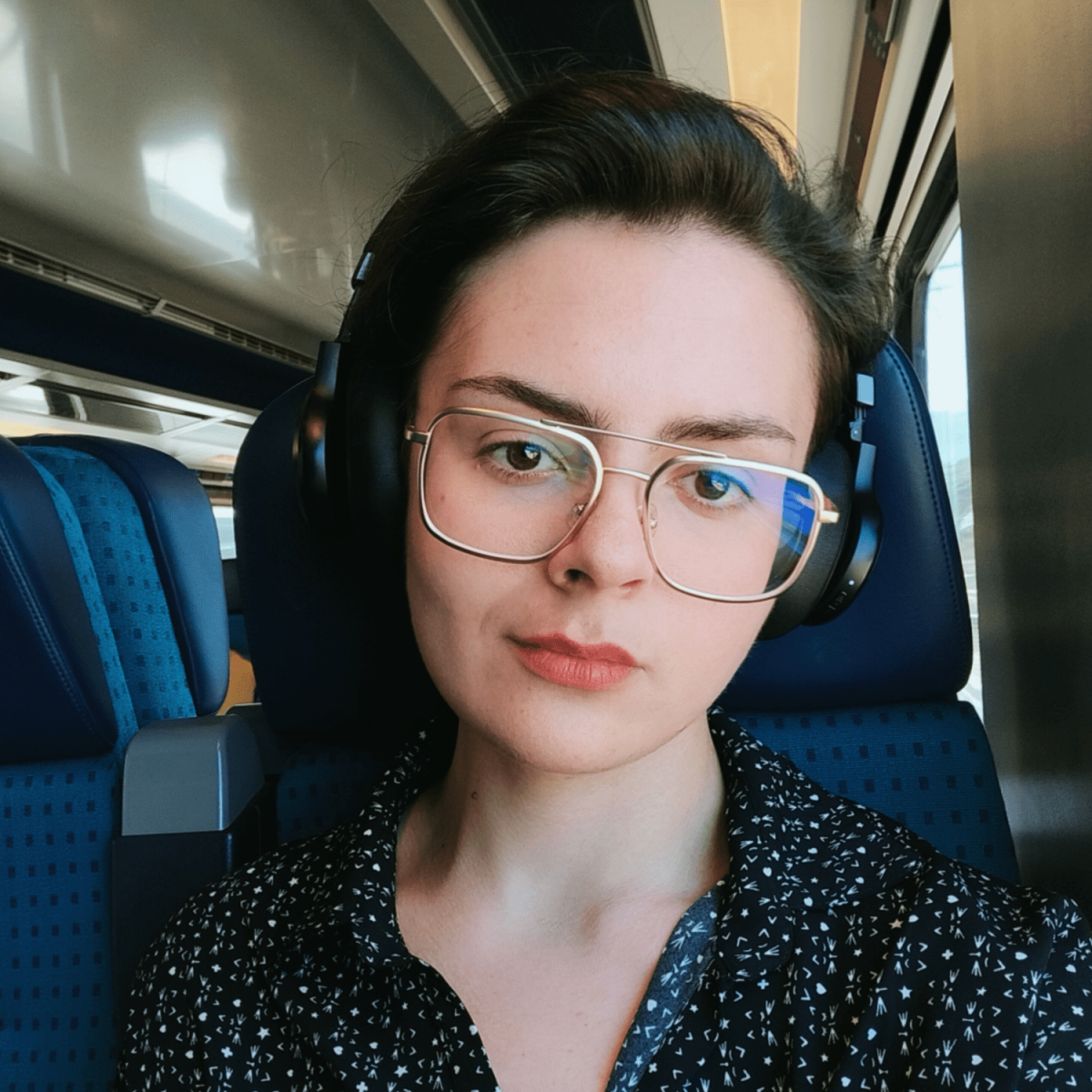Amidst the challenges of conflict, stories of adaptation and perseverance emerge. We spoke with Anastasiia Sheludko, a 26-year-old Ukrainian refugee who relocated to Switzerland two and a half years ago. Now residing in the canton of Valais, she is a participant at Powercoders, a Swiss non-profit organization established in 2017 that supports refugees and migrants by providing training and employment opportunities in information technology. Powercoders offers coding bootcamps, internships, mentorship, and career coaching to help participants integrate into the local job market. In this interview, Anastasiia shared her journey from Ukraine and her experience of adjusting to life in Swiss society and job market.

Anastasiia, can you tell us what it was like when the war first started?
When the war began, everything changed overnight. I spent the first 10 days in Mykolaiv, my hometown, sleeping in a basement. It was terrifying—there were street fights, and the reality was hard to grasp. At first, it felt unreal, like it couldn't be happening, but it was all too real.
That sounds incredibly challenging. How did you and your family decide to leave Ukraine?
My brother was deeply concerned for our safety. He basically commanded my mother and me to leave. We were hesitant at first, but his insistence convinced us. We decided to go to Romania initially, where we stayed for about a week. We had some acquaintances there who offered us a temporary place to stay. It was a brief moment to catch our breath after everything that had happened.
How did you end up in Switzerland?
After Romania, we moved to Switzerland with the help of family friends who were already living here. Honestly, I didn't care where we went—whether it was Romania or Switzerland. The goal was safety, not opportunity. Our friends helped us with the necessary paperwork and found us a host family. At the time, host families were quite common and I’m incredibly grateful for their support.
What was it like adjusting to life in Switzerland?
It was challenging, both mentally and emotionally. Accepting the reality of being a refugee was one of the hardest parts. The first year was especially difficult: life here is so different from what's happening in Ukraine. Every day, I would see news from home, and it was a stark contrast to my life here. I enrolled as an exchange student at a local university shortly after arriving, which helped me focus on something else. But it was still hard to push thoughts of Ukraine aside.

Did you face any other challenges while integrating into Swiss society?
Absolutely. Language was a big barrier since I don’t speak French, and while English was fine for my studies and internship, it was difficult to make friends with the locals. The cultural differences were also surprising. In Ukraine, we don’t do small talk, but here, it's a normal part of daily interactions. Despite these challenges, I found the Swiss people to be incredibly accommodating and welcoming. A local bakery, for example, would give us leftover bread three times a week. These gestures of kindness meant a lot to me.
You participated in a coding boot camp with Powercoders. How did that come about?
It was a coincidence. I found out about Powercoders through a Telegram group for Ukrainian refugees in Switzerland. The program partners refugees with companies for internships, and it was perfect timing for me as I was finishing my second semester at the university. The boot camp provided me with valuable skills and an internship, which was crucial for integrating into the Swiss job market.
You’re looking for a permanent job now.
Powercoders definitely helped me gain practical experience and understand the work culture here. I completed a nine-month internship, but securing a permanent job has been challenging. Our work permits are tied to the war, and not every employer is willing to navigate the complexities of these temporary documents. It's a bit uncertain since the permits are not permanent, and if the war were to end suddenly, we might have to leave within six months. This makes job security a significant issue.
What advice would you give to other refugees who are looking to integrate into a new country?
My advice would be to stay open-minded and adaptable. You never know what life will throw at you. Sometimes, you must take a step back—if you were a doctor in Ukraine, for instance, you might need to start as a nurse here. It's about rebuilding your life and not being afraid to start over. The important thing is to stay motivated and focus on the small victories, like getting your first salary and feeling that sense of independence again.
Thank you for sharing your journey with us, Anastasiia. It's a powerful reminder of the strength and resilience needed to start anew in the face of such adversity. We wish you all the best for your future